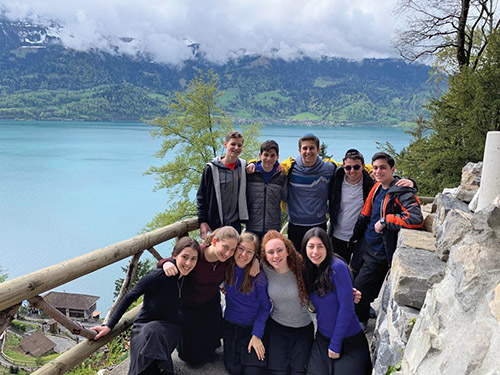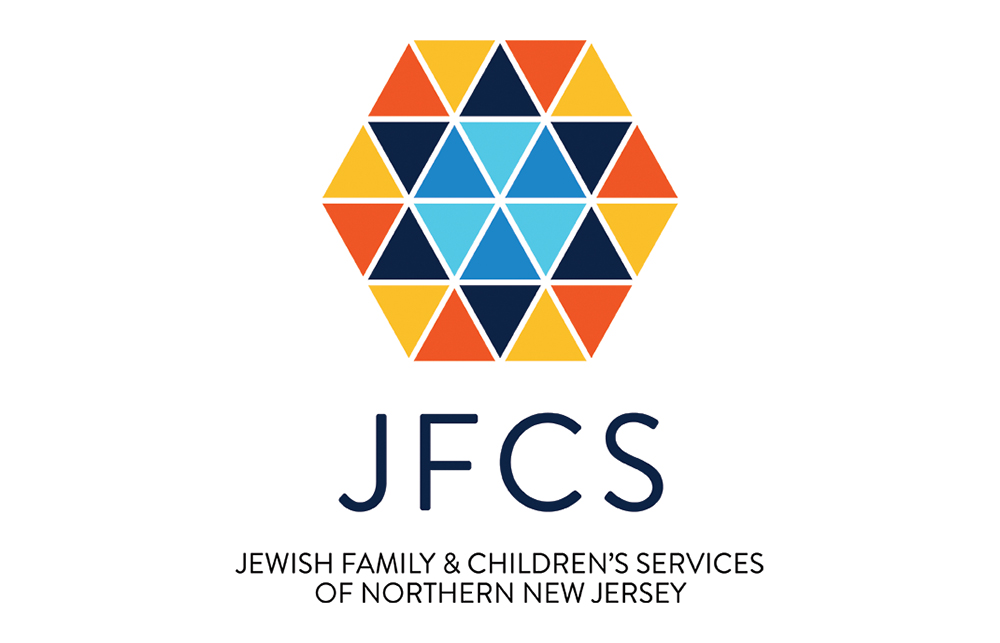


From May 1 to May 7, I was privileged to go on a trip to Switzerland with Frisch along with nine other students. In March, seven students from Basel, Switzerland came to Frisch to visit Teaneck, so I was excited to reunite with them. This trip was an unforgettable experience where not only did I have fun, but I also learned more about Judaism and connected with people across the world. I learned about the differences and similarities between the Jewish community in Basel and Teaneck and also the deep Jewish history rooted in Europe and the perseverance of the Jewish people.
In Basel, they have one main shul that the Jews in the community attend. One difference I noticed between the shuls in Teaneck and Basel is that in Basel the shul does not have one religious association, while in Teaneck you can select your shul based on how you identify as a Jew. In Basel, the shul had all types of Jews who came to daven in the same shul. Despite these differences, I found many similarities between Jewish life in Basel and in Teaneck. On Shabbos, many tunes that were sung during davening were the same as the ones sung in Teaneck. Additionally, we have the same Jewish values. For example on Yom Hazikaron, there was a program commemorating the fallen soldiers in Israel. The same night the Jews back home were doing the same. Despite living across the world from each other, we have unified values of Zionism and belief in Eretz Yisroel.
With Yom HaShoah and Yom Hazikaron in the same week as this trip, it felt even more impactful. We took tours around Basel and Strasbourg, France led by Jews who live in those communities. Something that stood out to me was the many atrocities that the Jews faced throughout the hundreds of years that Jews lived in Europe. Time and time again Jews were blamed when society struggled. For example, during the Black Plague, the Jews were blamed for poisoning wells. Many graveyards were made for Jews that were murdered; however, the tombstones were knocked down and covered by roads or used to build the walls of Basel. These locations that were once Jewish graveyards or places where Jews were murdered go completely unnoticed. Our tour guide pointed out that there are no plaques of commemorations or indications of what happened to the Jewish people in these various locations. The tour guide also explained that often when he at conventions with other historians, many forget that Jews lived in Switzerland for so long. Due to the lack of commemoration, most citizens in Basel are not aware that Jews have lived in Switzerland for over a thousand years; therefore, Jews are still viewed as foreigners by many people in Switzerland.
We had a personal experience of anti-Semitism while touring in Basel. A man yelled at us repeatedly and gestured towards us angrily. It was a jarring experience and I was left very shaken. Aside from feeling frightened, I felt so sad that I was attacked for the core of who I was. Additionally, I was upset because this is what Jews in Europe experience often. It was hard for me to understand what anti-Semitism feels like without ever personally experiencing it. Thank God this was not a violent attack, however, it put in perspective what anti-Semitism feels like.
Through these experiences in Switzerland, I cultivated a greater appreciation for Israel and the Jewish homeland. Throughout all of Jewish history, we always faced anti-Semitism and still do to this day. However, today with a Jewish homeland, we always have a sense of security and know that we have a place to go if we ever need to. I know that Jews around the world share many common values and we are strong when we are united. I am proud to be a Jew and I know that I have a whole nation there for me and a land to go to where I will be accepted with open arms.
Thank you to everyone who helped sponsor and organize the trip it was an unforgettable experience.
By Eliana Warshawsky
�













